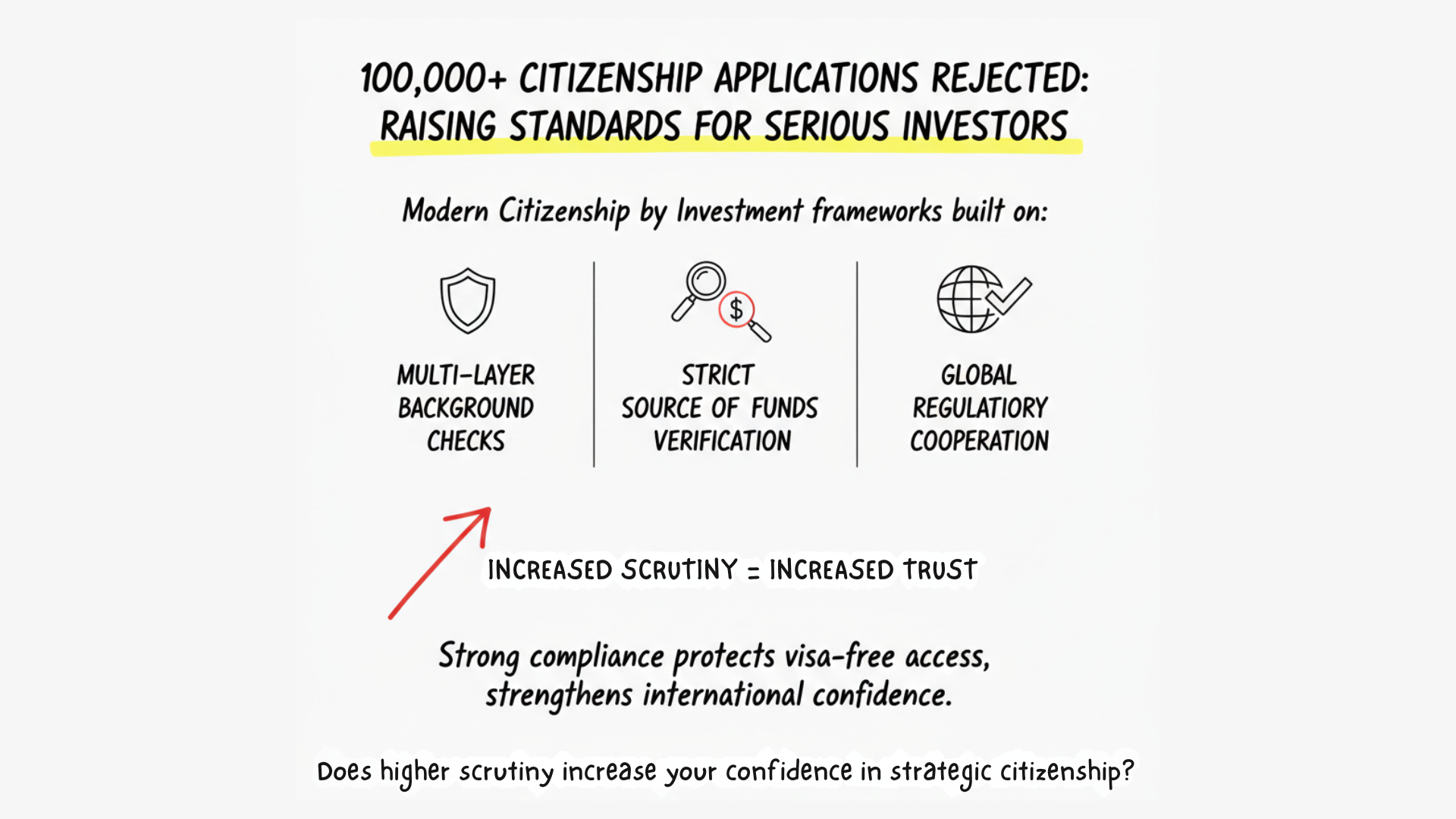Citizenship Scandal Unfolds: Cyprus Intensifies Passport Revocations Amid Scrutiny

On August 21, the Cypriot government announced a new wave of citizenship revocations, targeting 10 individuals who had obtained their passports through the now-obsolete Citizenship by Investment Program (CIP). This action is part of an ongoing investigation led by the Ministry of Interior, which examines the legitimacy of citizenships granted under the controversial program.
The Investigation and Its Findings
The latest revocations involve three investors and seven dependents, though their identities remain undisclosed. This brings the total number of citizenships revoked since October 2021 to 219, including 60 investors and 159 dependents. The move reflects the government’s determined efforts to rectify the issues that have plagued the CIP since its inception.
The CIP was initially launched in response to the European Debt Crisis, offering citizenship in exchange for substantial financial investments up to 2.5 million euros. The program quickly attracted interest, particularly from Russian and Chinese nationals seeking the benefits of an EU passport. However, the program’s reputation was severely damaged in 2020 following an investigation by Al Jazeera, known as the “Cyprus Papers.”
Scandals and Program Termination
The “Cyprus Papers” revealed that some individuals who had been granted citizenship were under international sanctions or had criminal backgrounds. This scandal led to the termination of the CIP and triggered a comprehensive review of the citizenships that had been approved during its operation.
A probe conducted in 2021 uncovered numerous irregularities within the CIP. Investigators found that 51% of the 6,779 citizenships granted between 2007 and 2020 were issued to applicants who did not meet the required qualifications. The investigation also exposed various forms of abuse, including conflicts of interest, influence peddling, and fraudulent property agreements that artificially inflated investment amounts.

Government’s Response and Recent Developments
Interior Minister Constantinos Petrides has acknowledged the program’s flaws, admitting that the lack of stringent vetting procedures, particularly for high-risk individuals, was a significant oversight. To address these issues, the government has intensified its efforts, launching a new investigation in May 2024. This examination focuses on approximately 100 cases of “problematic” citizenships, specifically targeting individuals wanted for crimes such as fraud and those who failed to make the necessary investments or only pretended to have done so.
Recent high-profile cases highlight the seriousness of the government’s crackdown. In July 2024, citizenships were revoked for two Russian Oligarchs, Konstantin Grigorishin and Igor Kesav, who had obtained their passports during the presidency of Demetris Christofias from 2008 to 2013. Similarly, in June 2024, Malaysian businessman Jho Low, implicated in the infamous 1MDB scandal, had his Cypriot citizenship annulled.
Legal Ramifications and Future Implications
The government’s commitment to transparency and accountability is evident in its approach to these investigations. Minister Petrides has emphasized that any disciplinary or criminal offenses discovered during the probe will be dealt with rigorously, suggesting potential consequences for officials or service providers involved in facilitating improper approvals.
In a significant legal development, the Plenary of the Administrative Court of Cyprus issued a landmark ruling on July 10, 2024. The court determined that investors whose citizenship applications were rejected under the CIP could seek judicial review. This decision challenges the government’s previous stance that such decisions were beyond judicial oversight, potentially opening the door for hundreds of rejected applicants to contest the government’s actions.
Conclusion
As Cyprus continues to struggle with the fallout from the CIP, the government’s actions reflect a broader effort to restore confidence in its citizenship policies. By addressing past mistakes and enforcing stricter standards, Cyprus aims to ensure that such issues do not recur in the future, while reaffirming its commitment to transparency and accountability.
Share this blog
Frequently Asked Questions
Related Articles
Beijing Is Watching Your Wealth; Turkey Offers a Legal Pathway
In an era of rising financial scrutiny, global investors are taking action. Discover why 89% of Chinese HNWIs are exploring…
$537M U.S. Investment Anchors Eko Atlantic City Lagos by 2028
The $537M U.S. Investment Anchors Eko Atlantic City, Lagos by 2028 signals institutional trust and long-term confidence in Lagos. For…
7 Key Risks A U.S. Setup Isn’t Always Best for
A cross-border business setup can boost global growth by reducing onboarding delays, payment friction, and concentration risk. This guide explains…
Why Citizenship by Investment Due Diligence Matters for Investors
Citizenship by Investment due diligence protects more than an application. It safeguards international credibility, visa free access, and long term…
Wealthy Americans Lead New Zealand Golden Visa Surge
Wealthy Americans are leading the New Zealand Golden Visa surge as investors prioritize stability and diversification. Billions in committed capital…
Second Residency Is Now A Top Three Global Wealth Priority
Second residency has quietly moved into the top tier of priorities for serious wealth holders. This article explains why investors…
UK Exit Tax 20% and the Future of Strategic Wealth
The UK Exit Tax 20% could significantly impact HNWIs, founders, and investors with substantial unrealized gains. This in depth analysis…







